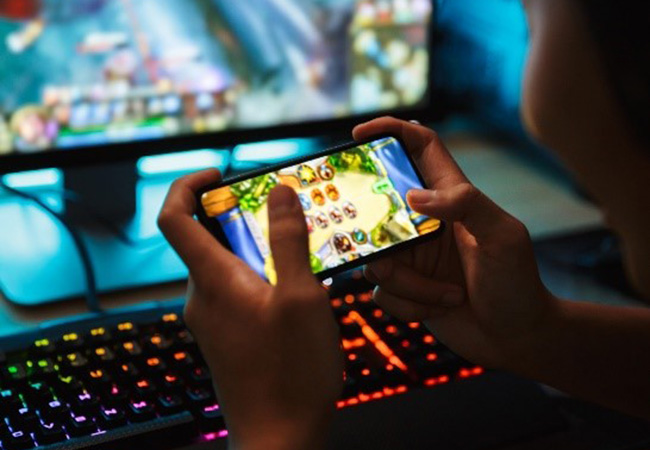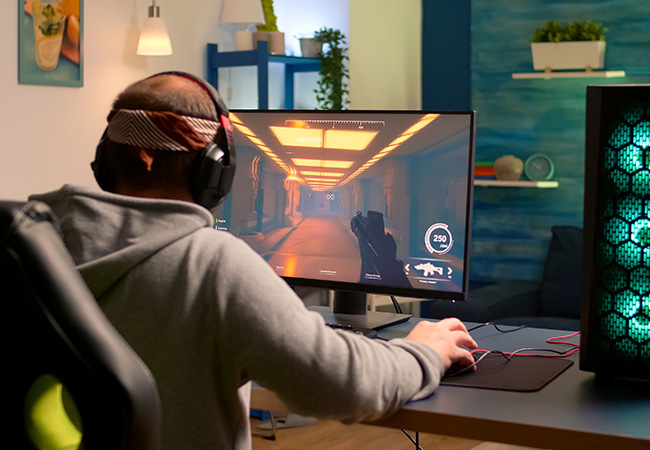With the disruptiveness of the Covid pandemic, we saw shifts across all human habits, with one in particular that stood out – the shift in Gaming.
Lockdown was the main reason we saw the spike in the gaming revenue. Already, we know consumers no longer follow channels, but rather content, and the very same can be said for gaming. Gamers constantly tap into new games across multiple digital platforms.
The growth in gaming is largely driven by Singapore which feeds into the United States, and we can see how this growth is filtering into the South African market. The proliferation in mobile technology continues to grow as tech giants further invest in mobile solutions that will make smartphones more accessible and affordable.
If it was not for my son, I would not have a clue about gaming. However, he’s gone from being a Fortnite aficionado to a Creative Content Curator for Fortnite gamers globally and he’s only 13! He’s creating gaming montages and uploading it to the gamer’s social media platforms from all corners of the world and turned his love of the game into a pocket money generator to fund all his gaming needs and wants. Earning up to 5 US dollars per video.

In another instance, a local Cape Town teenager saw a job opportunity which now generates an additional income for him just by teaching younger gamers how to become the best in whichever game they favour. This teenager charges between R100-R200 a session which is not only affordable but also extremely ingenious.
Gaming has changed into an income generator for the youth and young adults. With our high unemployment rate in South Africa this could be a potential income stream for these generations. Young gamers have turned their passion points into real revenue-generating streams. Gone are the days of kids completing simple household chores to make a buck, all they need is a stable internet connection and a gaming device.
The gamer’s stereotype was generally perceived as young, nerdy, and primarily male, however, this is a complete misconception as gaming has become conventional encompassing all age groups and genders.
Gaming has in the past had the perception of being dangerous. However, the youth of today are learning to become responsible digital citizens. Gaming has become a platform for youth to meet different people from different parts of the world and this expands their horizons and dreams which encourages exploration. It’s about connectivity and exploration plus enabling dreams that are not just limited to the narrow foresight of the world which is the perception of the majority of youth outside of the affluent markets.
Recent research published in January 2021, projects the video game market in South Africa will grow from R3.5 billion in 2018 to R5.44 billion in 2023. And according to GameAnalytics, the number of mobile gamers grew from 1.2 billion to 1.75 billion per month within the first quarter of 2020, an increase of 46%.
Consumers spent over $19 billion (R271bn) on mobile games in the second quarter of 2020. (Some) 21% of Android and 25% of iOS apps downloaded were games. By 2022, it was predicted that Android games would be responsible for 56% of all mobile game revenue, the report said. ( https://www.iol.co.za/business-report/economy/gaming-sector-in-africa-set-for-12-growth-b22d0edc-5eb7-4d51-a073-2c18545c087a )
As we see consumers shifting to more mobile-first experiences, Covid has also catapulted the usage of common mobile functionalities such as gaming, social media, and online shopping. As a result, tech brands realized that there was untapped potential in the market in terms of the growing monetization in gaming apps such as paid apps, and in-app purchases.
So, how can brands tap into the spending power of this category? What does this mean for South Africa?
- Association
From a gaming perspective, brands can associate with certain games that have the same ethos around their intended audience or the game mirrors who they are as a personality. Ideally collaboration could include sponsorships, partnerships, and eventing which could open the door for a variety of brands to come on board in the genres of music, apparel, dance and so forth. The key goal is not to push sales or bombard gamers with advertising but to rather deliver on engaging experiences as this will drive memorability and increase brand love.
- Product Placement in Gaming
Today, 82% of Gen Z skips ads within seconds. This segment of the market is always looking for custom made experiences which push the boundaries for marketers to rethink their communication strategy. With this rapid shift into streaming, subscriptions-based viewing, and on-demand services, traditional advertising is losing its relevance within this market.
Fortnite has been a leader in mastering brand partnerships by integrating countless product placements. They partnered with Nike and hosted a virtual live concert of DJ Marshmello. By 2019, Fortnite was named the most effective platform to promote a product by Polygon (Gaming website). By entering that platform, brands effectively became part of the pop culture.
Gaming apparel has become popular within this sector, as we see more and more clothing brands collaborate with gaming brands. Also, product placements are being programmatically inserted into the gameplay which gives brands access to qualitative data which in turn allows brands to serve relevant content to the right person at the right time. Brands can now extend their reach from a local footing to global reach and geo-targeting enables this functionality.
- Personalisation
This rapid-evolving tech scene makes it more and more difficult for brands to reach younger consumers. By tapping into the gaming sphere, brands can curate native content that is personalised to an individual gamer. This allows brands to engage and have one-on-one experiences with their wanted audience. It’s all about making experiences entertaining as this will drive connectivity and at the same time build a love for a brand. Engagement has to be genuine and resonate with the player as I can see how my son has grown to love Nike through being an avid Fortnite gamer.
Most Popular Online Games | Ranking Table | 2021
|
Rank |
Game |
Active Player |
|
1 |
PUBG |
100 Million+ |
|
2 |
Minecraft |
95 Million+ |
|
3 |
Apex Legends |
50 Million |
|
4 |
Fortnite Battle Royale |
45 Million |





















































































